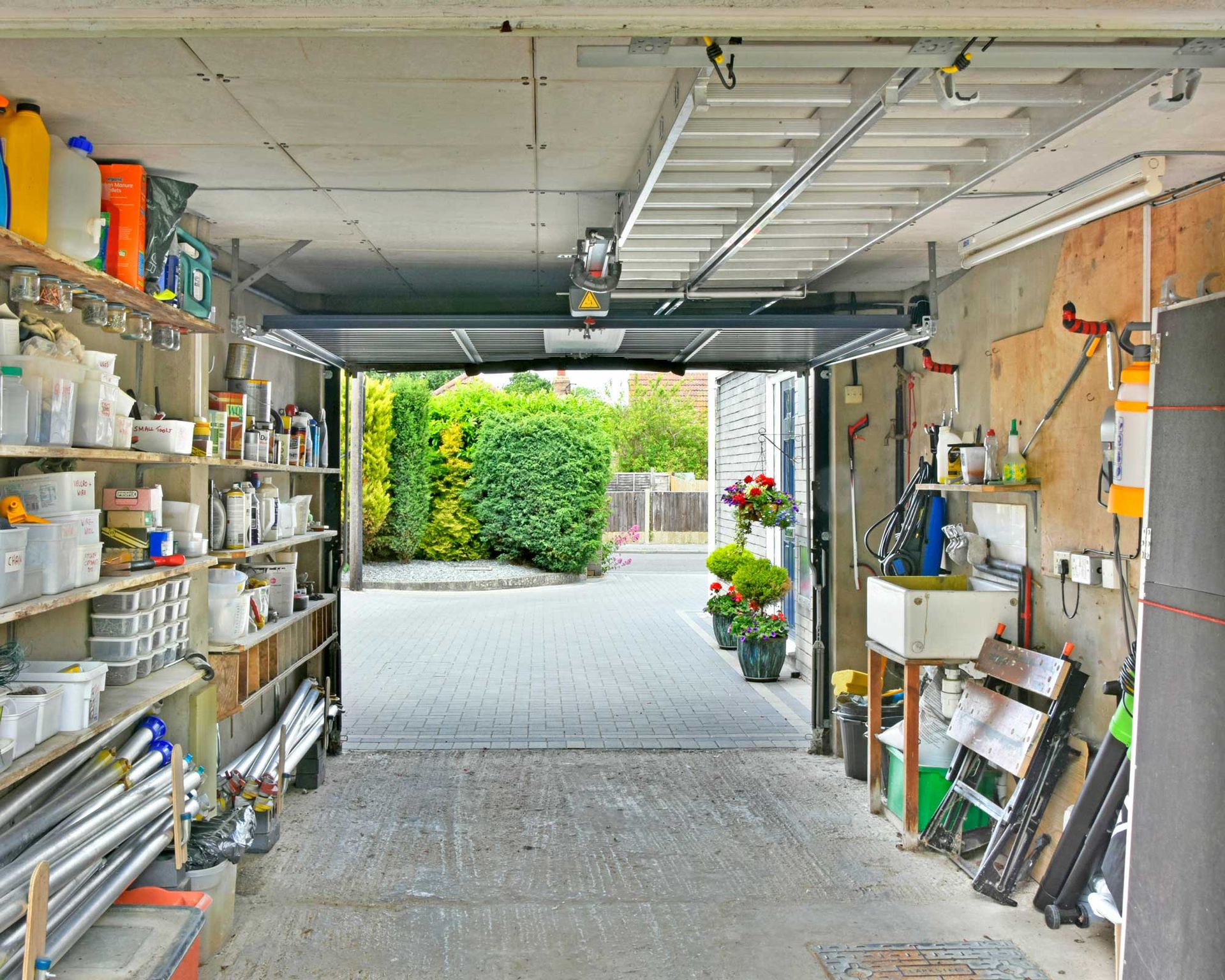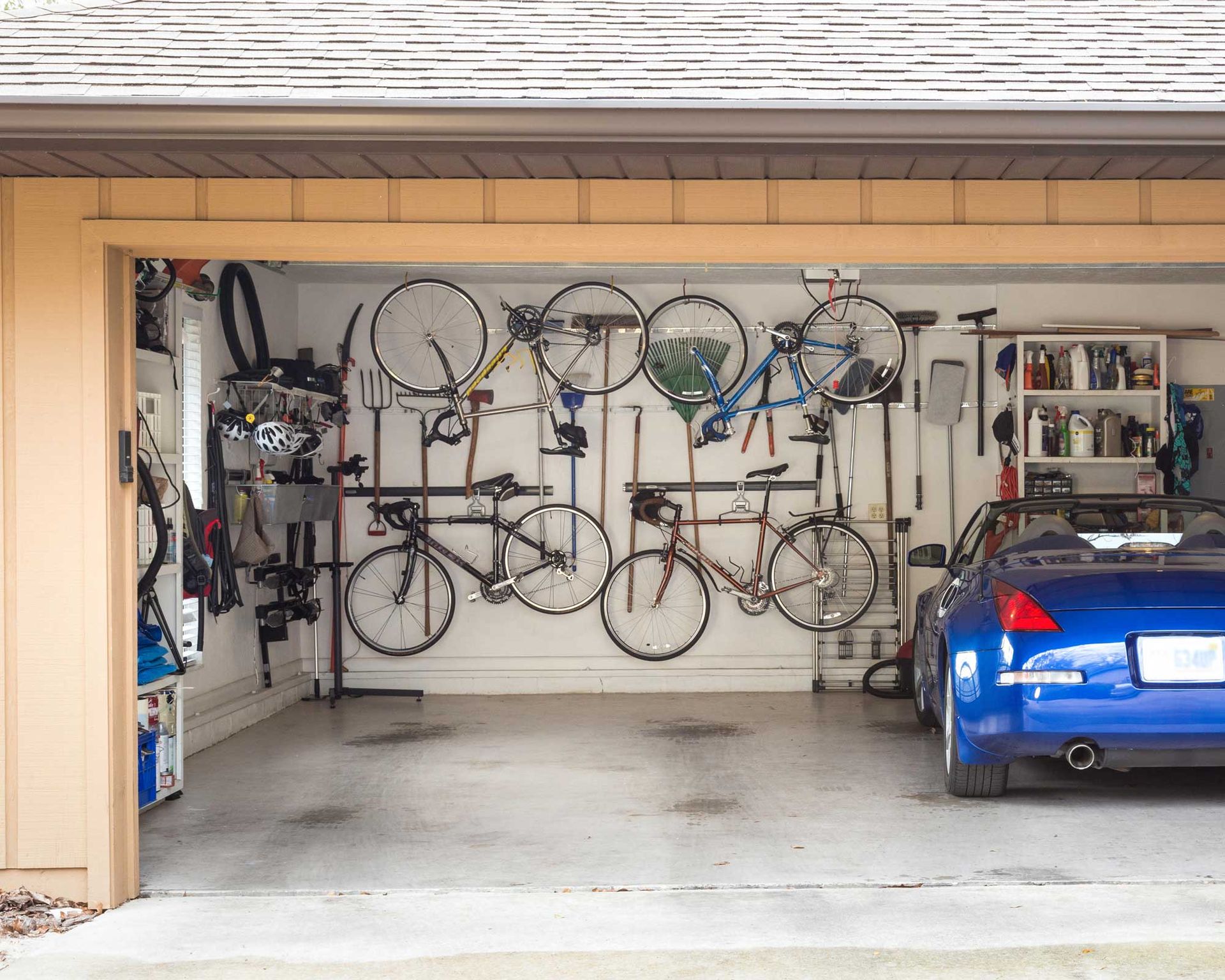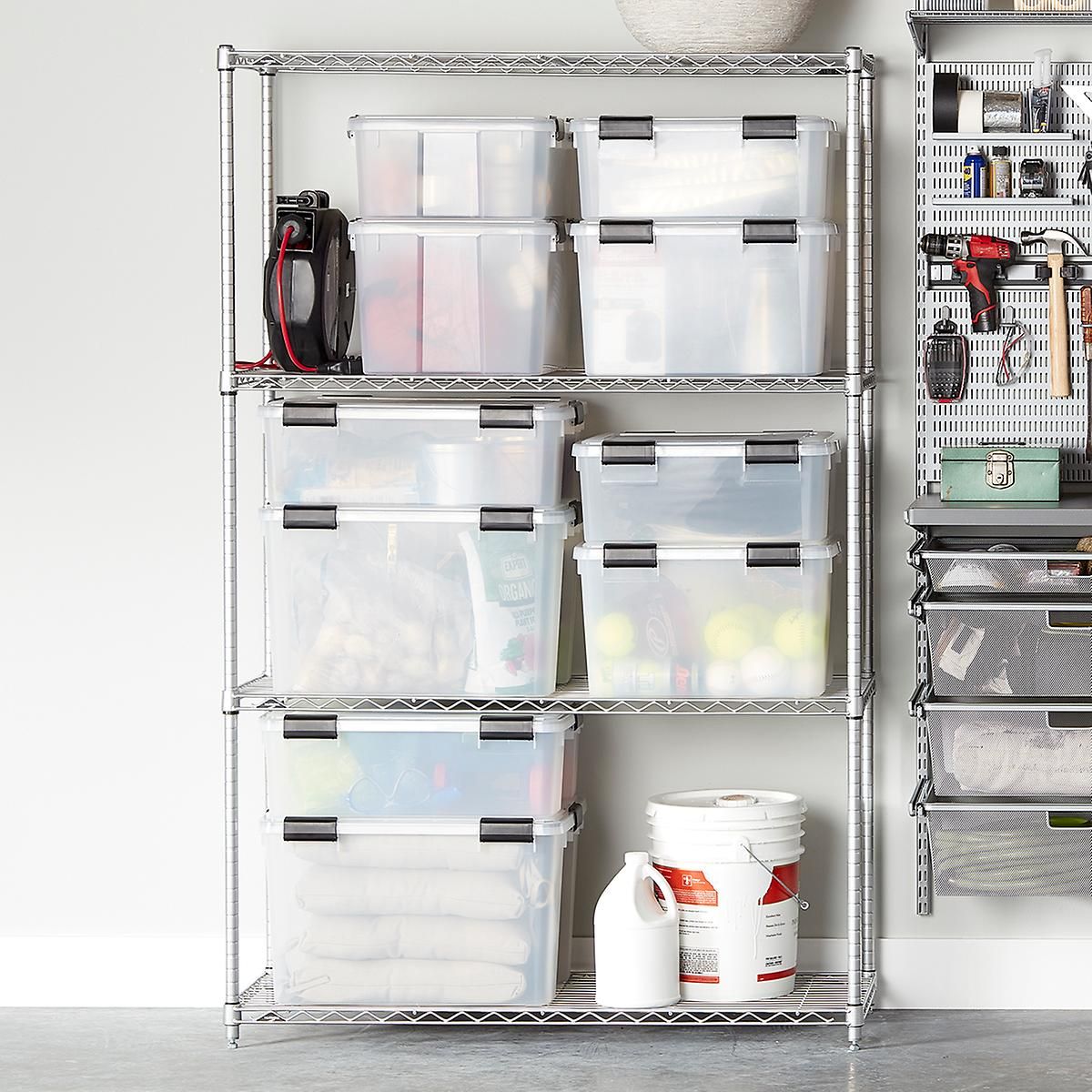How to organize a garage when you downsize | | Fitness tips of the day
Organizing a garage while moving home is one of those tasks most homeowners dread. But having to organize a garage when downsizing? That’s a whole new level of effort. Let’s be honest: most of us have garages that are a bit cluttered (or, if we’re being even more honest, really cluttered).
In an ideal world, we’d all have garages where everything is in its right place and no redundant objects are lurking in endless boxes.
The reality is that as you move, you’ll probably discover all kinds of things in your garage that you didn’t even know were there. Your kid’s old stroller from fifteen years ago? A toolbox of unknown origin?
How to organize a garage when you downsize
Figuring out how to organize a garage when you downsize will require you to be ruthless. But it’s also an opportunity to finally achieve a clutter-free garage. We’ve asked professional garage builders and organizers to give their tips on how best to achieve a well-organized garage when you are downsizing. Here’s what they advise.
(Image credit: Alamy)
1. Do a thorough clear-out
There’s no way around this first, essential step. The more you throw away, the less you’ll have to organize once you move. That’s the simple part. The less simple part is deciding what you should declutter. Things can easily accumulate in your garage that can seem like they’re still useful, but it’s almost guaranteed you’ll have things to get rid of in your garage.
Pay particular attention to anything that’s been in your garage for a long time, including building and decorating supplies. Discard old paint cans, especially if you live in an area with cold winters – the cold temperature will likely have ruined the paint.
Kept old clothing in your garage? If it smells musty, you may as well throw the stuff away – there’s almost no way to get rid of the damp smell once it’s penetrated the fibers.
Another item you can discard without remorse is old food. While it’s true that canned food is more durable than perishable items, it still spoils over time, especially if kept in a garage, which doesn’t have a stable temperature.
2. Consider where you’re moving
(Image credit: Alamy)
It’s not just the downsizing you need to keep in mind. If you’re changing your lifestyle and place of residence drastically, you may need to truly rethink what you’ll need in your new garage. Professional organizer and owner of A Meaningful Space Janelle Azar, has extensive experience in helping people move and declutter their garages.
Azar stresses the importance of considering where you’re moving to: ‘Perhaps you’re no longer caring for a lawn or gardening in your new space. Or maybe there is a fitness center where you can do your workouts. Check out any amenities that are available and let this guide your decisions about things like yard equipment, tools, and exercise gear as you declutter.’
Extra tip: You should also consider how your needs will change if you are moving to a different climate. ‘Ditch your snow shovel and winter gear if you’re heading to sunshine and warm weather,’ Azar recommends.
3. Assess how much storage you’ll need
(Image credit: Alamy)
‘Once you have gotten rid of everything you don’t need it is time to figure out how much storage space you’ll need to store all of your remaining possessions,’ says Garage Living co-founder, Aaron Cash.
This process can easily get overwhelming, but you can avoid this by categorizing the items you have into groups. ‘Divide your belongings into different piles based on their purpose and how often they are used and then make some rough calculations to figure out how much space you need,’ advises Cash.
Some categories you may consider include daily-use items like coats and shoes; seasonal items like holiday decorations, camping gear, and patio furniture.
Top tip: You can save yourself a lot of time by pre-purchasing some of the freestanding storage you’ll be using in your new garage. Transporting your things in durable garage storage boxes, at Amazon will save you the extra steps of unpacking and transferring.

Aaron Cash is a co-founder and partner of Garage Living, and currently serves as President of Garage Living Franchise Systems.
4. Decide whether you have the space for cabinets
(Image credit: Garage Living)
When moving, and especially when downsizing, you’ll also need to weigh what you want from your new garage vs. what the new space can realistically offer. Garage cabinets are one of the smartest garage storage options, but you’ll need to carefully measure the new space to decide if they are feasible. ‘Measure the space from the car to the walls on each side and factor in space for pathways and opening the car doors as well,’ Aaron Cash recommends. ‘These dimensions will help you determine what type of storage you can fit in your garage without losing functionality.’
If garage cabinets aren’t an option, you could invest in freestanding garage cabinets, at Amazon. These have wheels and can easily be moved around until you find a place where they won’t be an issue when parking your car.

Janelle Azar is the owner of A Meaningful Space, a professional organizing company that serves the metro Detroit area. Her company specializes in residential organizing services for moms and families that are tailored to each client’s home, routine, and lifestyle. She is also the creator of Simplifying & Organizing with Kids, a digital course that teaches busy parents how to keep their homes clutter-free while getting their kids involved in the process.
5. Utilize vertical space
(Image credit: The Container Store)
This is a timeless tip that works for garages of all sizes, but it’s invaluable when downsizing. You will have less floor space to play with, so invest in storage racks. They are great ‘for large items (such as storage bins and seasonal tires) that take up a lot of floor space, they’re easy to use and easy to adjust to the right size,’ says Cash.
Artem Kropovinsky, an interior design expert and founder of Arsight, also highly recommends freeing up your floorspace by installing hooks and wall-mounted systems: they’re ‘ideal for items like bicycles, climbing gear, or items with sporadic usage.’

Based in New York, Artem Kropovinsky, founder of Arsight, has a decade of extensive and considerable global design experience. Prioritizing minimalism, sustainability, and authenticity, Artem, alongside his team of professionals, works on projects in the US and worldwide.
6. Don’t forget to label things
Kropovinsky recommends incorporating ‘thoughtful labeling’ into your new garage design scheme. Zoning your garage will go a long way to knowing where different items are: ‘for example, Tools Zone, Sporting Equipment Retreat, Furniture Corner.’ But if each section will consist of additional boxes, it’s a very good idea to label each one. This will make life a lot easier when it comes to finding a specific tool or a seasonal piece of sporting gear.
FAQs
How long does it take to declutter a garage?
This, of course, will depend on the size of the garage you are decluttering. Aaron Cash offers a very useful table of estimates, depending on how big your original, pre-downsizing garage is, and how much clutter you’ve got in it:
Small Garage (1-2 Car): Minimal clutter: A few hours to a day. Moderate clutter: A day to a weekend. Severe clutter: A weekend to a few days.
Medium Garage (2-3 Car): Minimal clutter: A day to a weekend. Moderate clutter: A weekend to a few days. Severe clutter: A few days to a week.
Large Garage (3+ Car or Oversized): Minimal clutter: A weekend to a few days. Moderate clutter: A few days to a week. Severe clutter: A week or more.
How do you categorize things in your garage?
If you’re a bit stuck on the categorizing step of the organization process, use this simple method: go from broad, general categories to smaller, more precise ones. As you go through your items, sort them into broad categories like ‘Tools,’ ‘Sporting Equipment,’ ‘Seasonal Items,’ ‘Household Supplies,’ ‘Gardening,’ ‘Automotive,’ and so on.
Once you’ve completed this broad categorization process, start sorting things into more specific groups. For example, the tools section can be subcategorized into ‘Hand Tools’, ‘Power Tools’, ‘Gardening Tools’, and so on. Obviously, don’t get too carried away with the subcategories; they should make your life easier, not confuse you even more when it comes to finding something.
Also, consider the weight of your items. It makes sense to store heavier equipment in a way that’s easy to reach and get out of the garage when necessary (think lawnmower, bike, and other heavy things). Lighter items, especially those you don’t need often, can be stored further back.
Ultimately, organizing a garage when downsizing is a daunting but achievable task. Be methodical, give yourself enough time to declutter, and having a smaller garage might actually turn out to be a (clutter-free) blessing.







